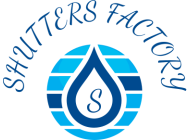Soundproofing Shutters Reduce Outside Noises for Peace Indoors
Excessive noise pollution can make home life stressful and disruptive. Whether it’s traffic, construction, noisy neighbors or barking dogs, external sounds penetrate walls and windows causing distractions. Soundproofing shutters are specially engineered to absorb exterior noises and allow peaceful, quiet interiors. Let’s examine how soundproof shutters block undesirable sounds for relaxation and improved concentration.
Annoying Outdoor Noises
Common disruptive noises that invade living spaces include:
- Traffic from nearby roads, highways and airports
- Heavy machinery and equipment sounds from construction sites
- Noisy neighbors from parties, televisions or musical instruments
- Dogs persistently barking, howling or whining
- Weather noises like pouring rain, wind and hail
- Pool pumps, air conditioners and other mechanicals
These pervasive noises make it hard to enjoy quiet time or get restful sleep.
Benefits of Soundproofing Shutters
Installing noise reducing shutters offers many perks:
- Creates peaceful environments for relaxation or focused work
- Allows uninterrupted sleep patterns by blocking nighttime noise
- Increases privacy by also muffling indoor sounds
- Reduces stress, fatigue and headaches caused by noise
- Higher property value for homes with acoustic insulation
- Can minimize need for expensive sound barrier fences or walls
Thoughtfully engineered shutters effectively reduce unwanted noise distractions.
How Soundproof Shutters Function
Specialized construction gives shutters noise isolation abilities:
Sound Absorbing Materials – Materials like foam or insulation absorb and deaden noise vibrations rather than transmit them.
Dense Materials – Heavyweight materials like wood, steel and PVC naturally inhibit noise passage.
Multi-Layering – Stacked panels prevent noise transmission through shutter layers.
Airtight Fitting – Complete perimeter seals prevent sound travel around shutter edges.
Isolate Vibrations – Rubber or felt lining prevents noise transfer through window frames.
Noise Diffusers – Louvers and vents scatter and diffuse noise waves instead of directly transmitting them.
Best Materials for Soundproof Shutters
Certain materials possess impressive sound dampening qualities:
- Hardwood – Dense oak, poplar or maple prevent noise penetration.
- PVC Vinyl – Waterproof vinyl resists transmitting noise vibrations.
- Steel – Substantial density obstructs passage of sound waves.
- Fiberglass – Non-conductive material hinders noise transfer.
- Foam – Sound absorbing polyurethane or polystyrene foams.
- MDF – Heavy, acoustically rated MDF boards block noises.
- Laminated Glass – Supplementary soundproofing for windows.
Thoughtful material selection maximizes noise reduction.
Design Factors that Aid Sound Insulation
Along with material choices, specific design elements enhance sound blocking:
- Multiple thick weighted panels prevented noise transmission
- Tightly fitted operable joints prevented sound leaks
- Perimeter seals and weatherstripping prevent noise infiltration
- Integrated noise cancelling chambers absorb and deaden sounds
- Asynchronous louver and panel spacing disrupt noise passage
- Curved slats and hollowed chambers diffuse and scatter sound waves
Meticulous construction and seam sealing are key for best soundproofing.
Achieve Acoustic Privacy Without Sacrificing Style
Unlike bulky industrial noise barriers, today’s soundproofing shutters are as elegant as they are effective. With customizable colors and materials like rich wood tones or sleek aluminum, noise reducing shutters complement any décor. Treat yourself to serene spaces protected from the hubbub of outdoor nuisances. Consult shutter specialists to start enjoying the sound dampening benefits for improved relaxation, productivity and sleep.

Leave a Reply